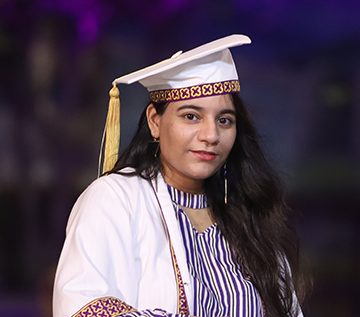
SARAH ANSARI
Aspiration Statement
I intend to work in research or HR-centric fields, as I believe they function as the core centres for any organization. I aim to learn how to best lead, collaborate, contribute, and innovate within and outside an organization.
Core Skills
- Microsoft Office Suite
- MAXQDA
- Research and data analysis
- Program/Project planning and management
- English, Urdu, Punjabi, Spanish
Academic Awards / Achievements
- Dean's List for Fall 2019
Experience
Leadership / Meta-curricular
- Habib University Student Government (2020) - Elected Member
- HUMUN 3 (2019) - Assistant Committee Chair
- Annual Regional-Language Play on Campus (2019) - Organizer
- Pride Press Club (2018) - Member
Internship / Volunteer Work
- KPMG - Risk & Management Consultant
- Preply - English Language Instructor
- Pakistan Institute of International Affairs - Research InterN
- Youth Centre for Research - Research Team Supervisor
- Habib University Student Government - Cabinet Chair, Academic Affairs
- Habib University - Research Assistant
Publications / Creative Projects
- Journal article submitted to the Pakistan Horizon on global security in light of the COVID-19 pandemic.
- Paper accepted for research journal, Tezhib (2021)..
Final Year Project
Project Title
Assessing How the COVID-19 Pandemic Has Disproportionately Impacted Women: Analyzing a Gendered Economy
Description
The COVID-19 pandemic drastically altered nearly every aspect of human society - from politics, international relations, healthcare, social living, and the economy. Through the collection of primary data (in the form of semi-structured interviews), and secondary research, this paper addresses how women have been disproportionately impacted by the ongoing pandemic, by applying a particular focus on the gendered economy, and specifically how disparities within employment rates and wages between men and women, alongside the prevalence of the unacknowledged care economy in Pakistan, are indicative of how even a shattered economic situation still carries gendered implications.